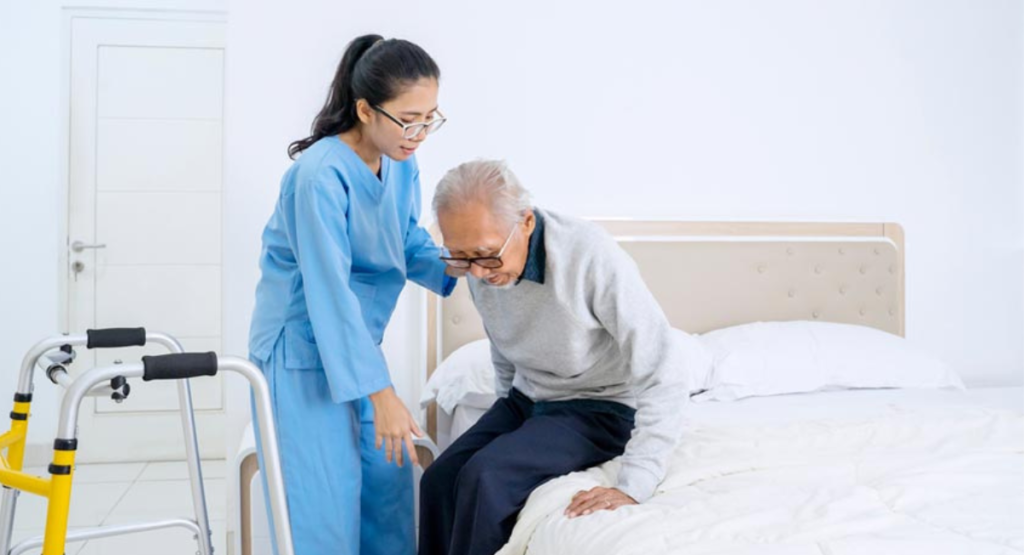When a person has a stroke, it affects more than just their physical health. Memory and cognitive abilities might also be greatly impaired. Stroke survivors commonly have memory loss or difficulties recalling things. This can be upsetting for both the person and their loved ones. However, there are some ways and procedures that might assist stroke patients enhance their memory and restore some cognitive functions.
The Impact of Stroke Patients on Memory
The brain is a complicated organ, and when there is a stroke, it affects the flow of blood and oxygen, causing damage in specific locations. Various cognitive skills, including memory, might be impacted by the degree and location of the stroke. Some stroke survivors may have modest memory impairment, whilst others may have significant memory loss.
Rehabilitation and Memory Training
Rehabilitation is critical to helping stroke sufferers recover and regain independence. Memory training is a common component of stroke therapy regimens. These programs aim to assist patients enhance their cognitive capacities and memory capabilities. Memory exercises can include tasks like word association, puzzles, and memory games, all of which attempt to stimulate the brain and improve recall.
Using Routine and Structure
Creating a regimented schedule might be quite helpful for stroke victims experiencing memory loss. People might find it easier to recall crucial chores and appointments when there is consistency and predictability, since these factors can assist lessen uncertainty and worry. To help stroke patients keep organized, caregivers should make daily routines, create reminders, and use tools like calendars and planners.
How to Use Technology and Memory Aids
Technological developments have produced new instruments and apparatuses that can help stroke victims retain their memories. To-do lists, voice activation, wearable technology, and smartphone applications may all be used to help people remember things, make reminders, and manage their critical data. Patients recovering from strokes who would find it difficult to utilise more conventional pen-and-paper memory aids may find these items very helpful.
Encouraging Physical Activity and Healthy Lifestyle Choices
Physical activity has been found to provide several health advantages for the brain, including improved memory and cognitive function. Encouraging stroke patients to exercise on a regular basis, within the limits of their physical capacity, can aid with general brain health and memory retention. Furthermore, having a healthy lifestyle that includes sufficient diet, adequate sleep, and stress management might aid in memory enhancement.
Supporting Emotional Well-being
Emotional well-being is important for memory retention and general rehabilitation following a stroke. Stroke survivors may feel frustrated, unhappy, or anxious as they deal with memory loss. Emotional support and encouragement can enhance morale and motivation, which can then improve memory and cognitive performance.
Engaging in Social Activities and Connections
Social interaction is important for brain health and can help stimulate memory and cognitive function. Encouraging stroke patients to participate in social activities, whether it’s joining a support group, attending community events, or spending time with friends and family, can provide mental stimulation and emotional support. These interactions can help keep the brain active and engaged, promoting better memory retention.
Conclusion
In conclusion, addressing the challenges of memory impairment in stroke patients requires a multifaceted approach that combines medical interventions, rehabilitative therapies, and supportive environments. Implementing personalized cognitive rehabilitation programs, utilizing assistive technologies, and fostering a nurturing support network can significantly enhance the quality of life for stroke survivors. Moreover, ongoing research and innovation in neuroscience offer promising avenues for developing targeted interventions tailored to the specific needs of individuals affected by stroke-related memory deficits. By fostering collaboration among healthcare professionals, caregivers, and patients, we can strive to improve outcomes and empower stroke survivors to reclaim their cognitive abilities and rebuild their lives with resilience and hope.
We are India’s first comprehensive continuum care provider. We provide multidisciplinary out of hospital care to acute and post-acute and chronically ill patients at our critical care facilities and your home.

